Roadmap to Reading: Great Reads from Great Places
Every year, a list of books representing the literary heritage of the 50 states, the District of Columbia, Puerto Rico and the U.S. Virgin Islands is distributed by the Library of Congress’s Center for the Book during the National Book Festival. Each book is selected by a local Center for the Book or state library. Books may be written by authors from the state, take place in the state, or celebrate the state’s culture and heritage. This list began with mostly books for young readers, but an adult list was added in 2022, so each year, states pick both a Young Readers’ Selection and an Adult Readers’ Selection. View Georgia’s 2024 selections and those of the other participants here. Watch videos with previous years’ honorees and other events done in conjunction with the National Book Festival and affiliate centers for the book here.
2025
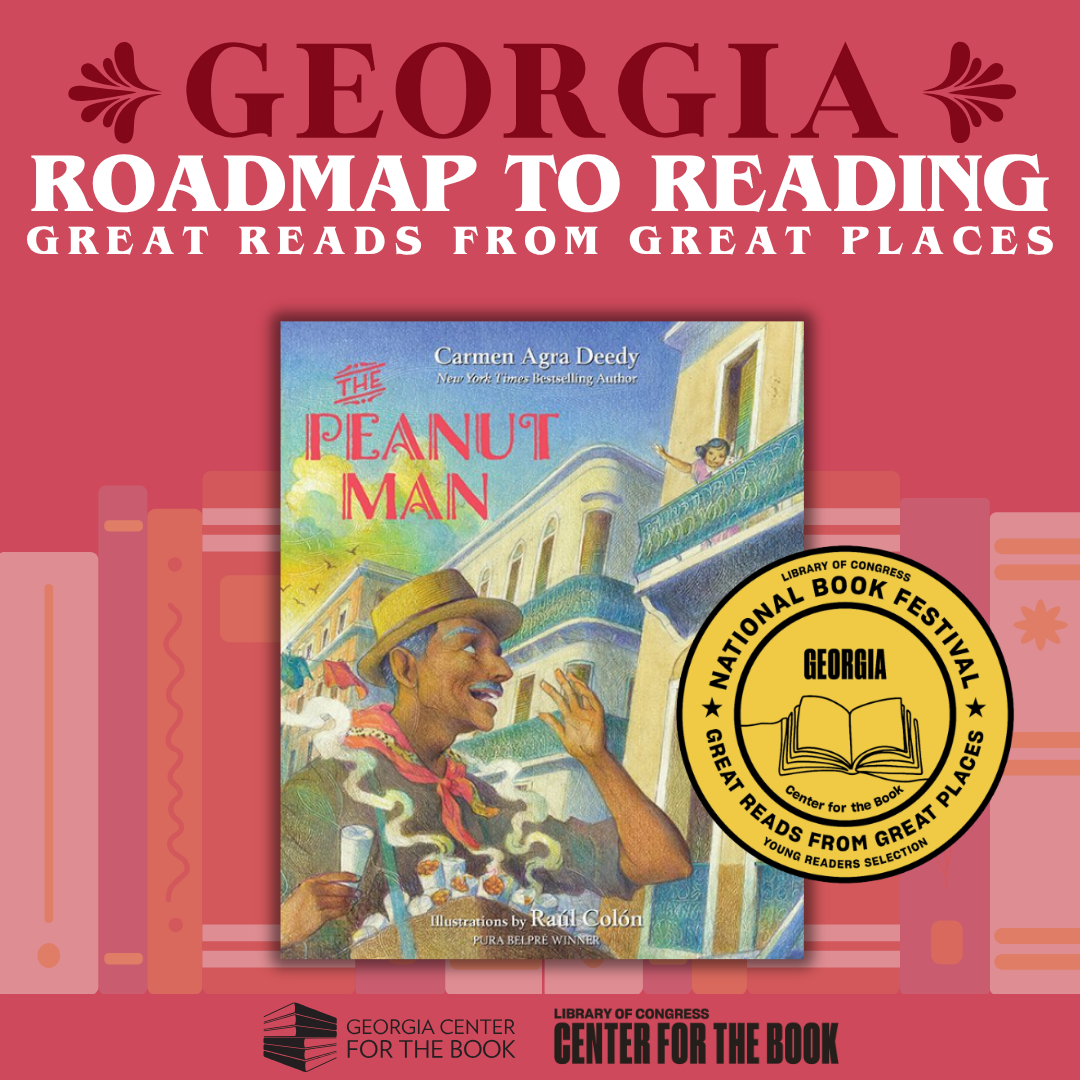
The Peanut Man by Carmen Agra Deedy
Young Readers’ Selection 2025
The Peanut Man by Carmen Agra Deedy is a picture book that tells the story of a Cuban refugee and her joy in an unexpected encounter that connects her beloved home in Havana with her new home in Atlanta, based off of Carmen’s own life. Each evening Coqui waits for the familiar cry of the Peanut Man — ”¡Mani! Peanuts!” — and watches for him to appear on the street below her window. They always greet each other in their own special way — Coqui tucks her thumbs in her ears and sticks out her tongue at Emilio. And Emilio, to her great amusement, does the same in return. Night after night, the two friends continue their ritual. One evening, Coqui sadly announces, “Nos vamos.” She tells him that they have to leave Cuba. They are going to the United States. Emilio tries to assure her that she will like many things about los Estados Unidos, especially beisbol, her favorite sport. “But don’t forget your friend Emilio,” he says as he walks away. “¡Nunca!” she calls out through tears. She could never forget him. Coqui and her family arrive in Decatur, Georgia, in the dead of winter to snow-covered ground. Her father seals the windows with duct tape and they await the arrival of spring. Coqui watches for the Peanut Man, but he does not appear. Several years pass, she learns wobbly English, and becomes a devoted Atlanta Braves fan. She forgets her beloved Peanut Man. Then one day her father surprises her with the perfect birthday gift — two tickets for a Braves game to see their favorite player Hammerin’ Hank Aaron. As they settle into their seats amid the cheering crowds, Coqui hears a man yelling “Peanuts! Get your peanuts!” The delicious smell of roasted peanuts reaches her and memories of home and Emilio rush into her head. With luminous illustrations by the award-winning artist Raúl Colón, this story of immigration, of being displaced and finding a connection to home, reminds us how much alike we humans are, regardless of culture, color, or creed.
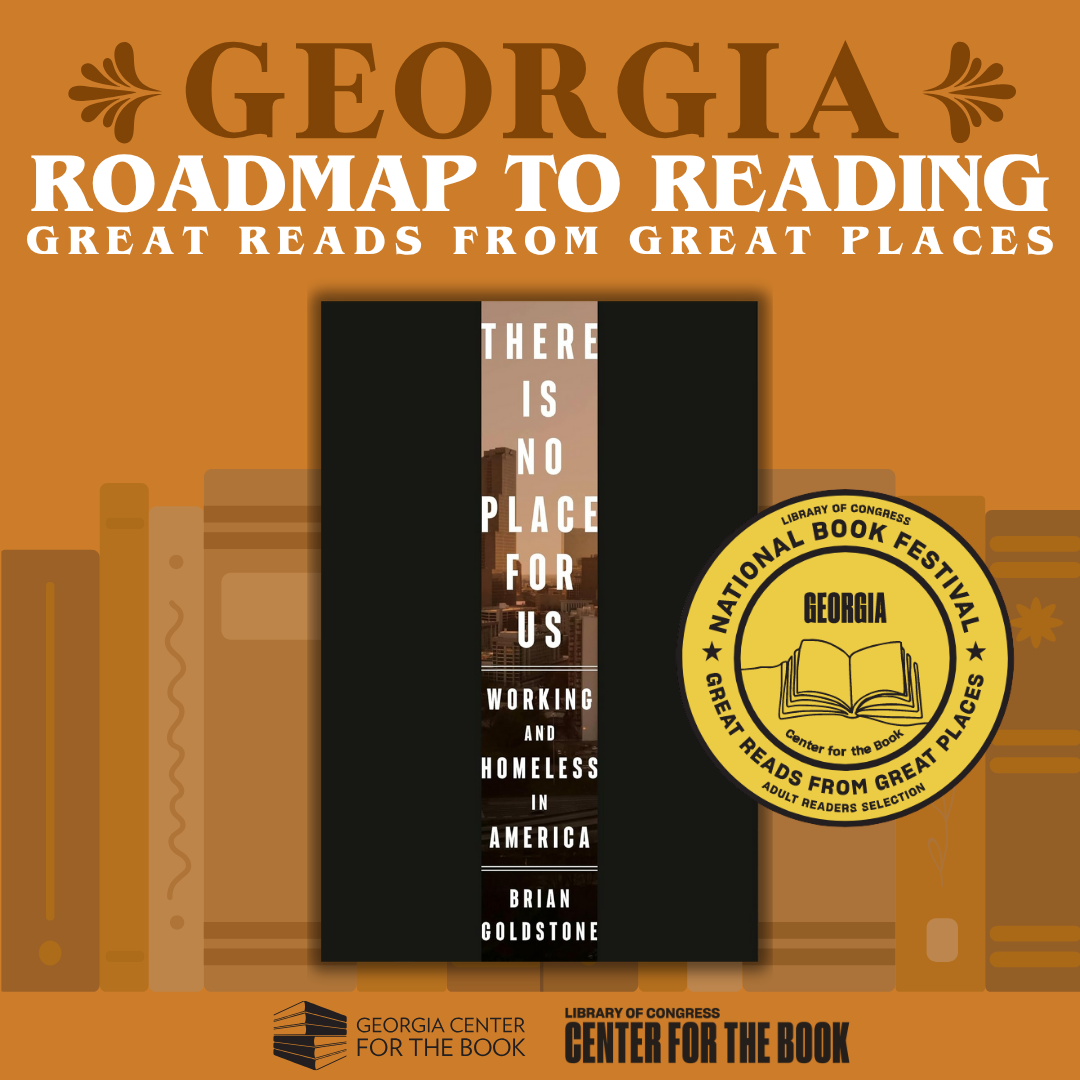
There is No Place for Us: Working and Homeless in America by Brian Goldstone
Adult Readers’ Selection 2025
There is No Place for Us: Working and Homeless in America by Brian Goldstone is a nonfiction book telling the story of the working homeless. In a country where hard work and determination are supposed to lead to success, there is something scandalous about this phrase. But skyrocketing rents, low wages, and a lack of tenant rights have produced a startling phenomenon: people with full-time jobs cannot keep a roof over their head, especially in America’s booming cities, where rapid growth is leading to catastrophic displacement. These families are being forced into homelessness not by a failing economy but a thriving one. In this gripping and deeply reported book, Brian Goldstone plunges readers into the lives of five Atlanta families struggling to remain housed in a gentrifying, increasingly unequal city. Maurice and Natalia make a fresh start in the country’s “Black Mecca” after being priced out of DC. Kara dreams of starting her own cleaning business while mopping floors at a public hospital. Britt scores a coveted housing voucher. Michelle is in school to become a social worker. Celeste toils at her warehouse job while undergoing treatment for ovarian cancer. Each of them aspires to provide a decent life for their children — and each of them, one by one, joins the ranks of the nation’s working homeless. Through intimate, novelistic portraits, Goldstone reveals the human cost of this crisis, following parents and their kids as they go to sleep in cars, or in squalid extended-stay hotel rooms, and head out to their jobs and schools the next morning. These are the nation’s hidden homeless — omitted from official statistics, and proof that overflowing shelters and street encampments are only the most visible manifestation of a far more pervasive problem. By turns heartbreaking and urgent, There Is No Place for Us illuminates the true magnitude, causes, and consequences of the new American homelessness — and shows that it won’t be solved until housing is treated as a fundamental human right.
2024
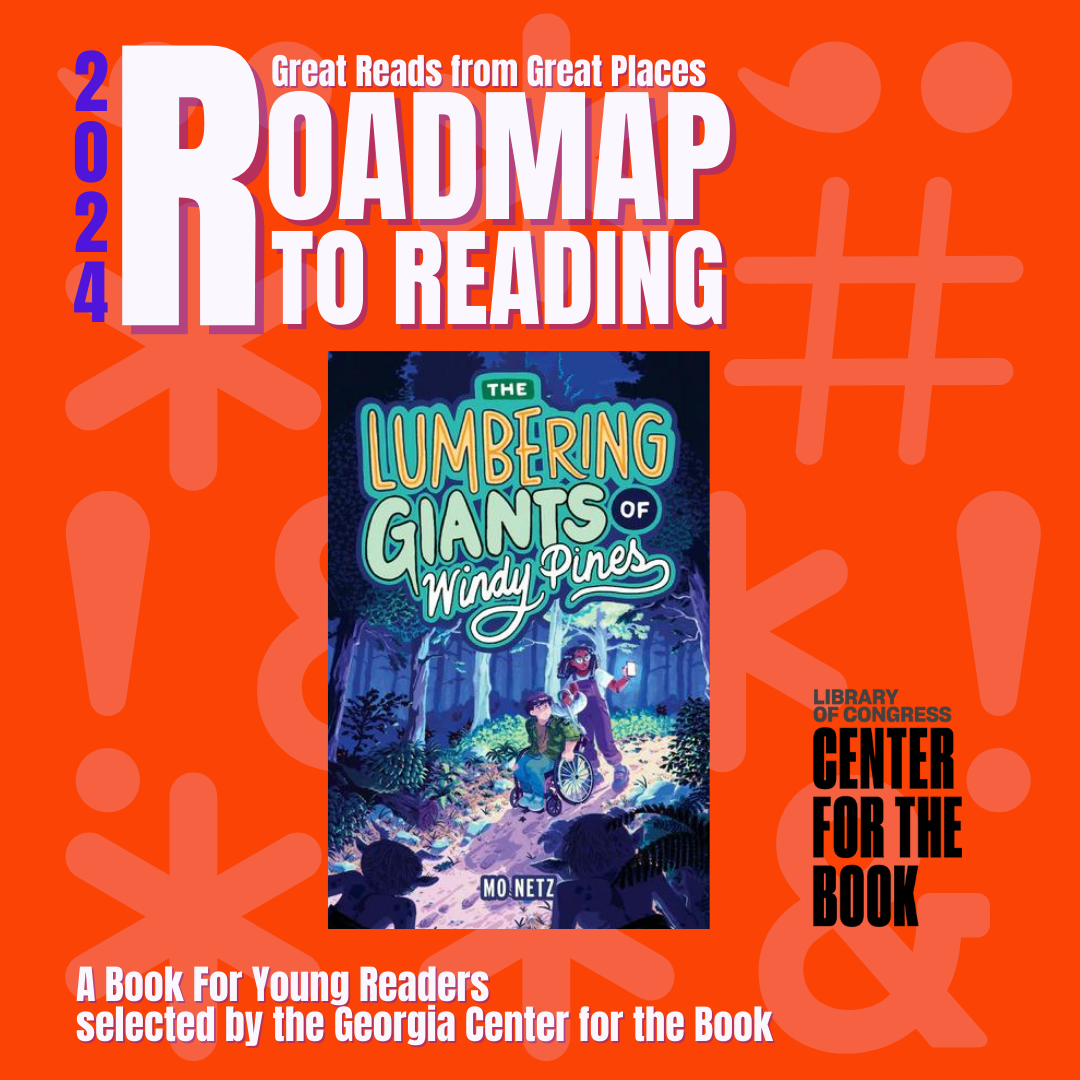
The Lumbering Giants of Windy Pines by Mo Netz
Young Readers’ Selection 2024
The Lumbering Giants of Windy Pines by Mo Netz is a middle grade fantasy novel. In this debut spooky adventure, Jerry and her trusty wheelchair move into a creepy motel at the edge of the woods where nothing is as it seems. When her mom disappears, it’s up to Jerry to brave the forest and its demons so she can save what’s left of her family. Ever since her dad died, 11-year-old Jerry Blum and her mom have bounced around dead-end towns, staying in a series of rundown motels where her mother picks up housekeeping work and Jerry can get around in her wheelchair. But the Slumbering Giant motel is different. Lights blink on and off in the surrounding trees, a mysterious radio station plays only at midnight, and people disappear into the woods, never to been seen again. Not to mention that Jerry’s mom keeps vanishing to do “special work” that she refuses to discuss. When her mother doesn’t come home one morning, Jerry springs into action. Luckily, she’s not alone. Paul, a pocket-size imaginary dragon, and Chapel, a new friend with a penchant for the supernatural, join Jerry’s search for her missing mom. But along the way Jerry discovers her mother’s terrible secret. Armed with nothing but a Ren Faire sword and a backpack, Jerry and her friends venture into the forbidden woods to save Jerry’s mother and unravel the truth behind the town’s legend.
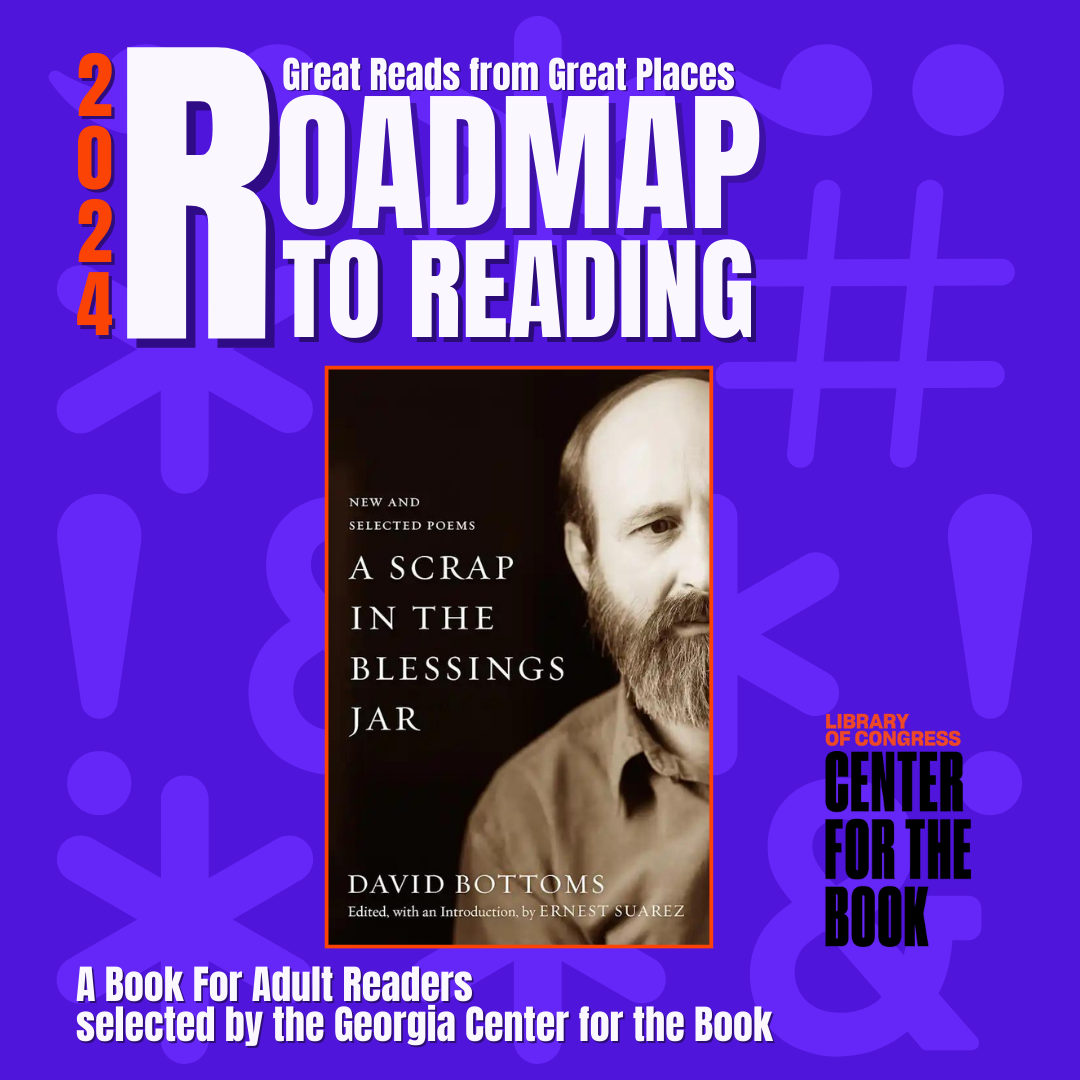
A Scrap in the Blessings Jar: New & Selected Poems by David Bottoms
Adult Readers’ Selection 2024
A Scrap in the Blessings Jar: New & Selected Poems is the final work by former Georgia Poet Laureate David Bottoms. Published posthumously, the collection captures the evolution of the poet’s spiritual quest over the past fifty years. A native and longtime resident of Georgia, Bottoms draws inspiration from the American South, and his work examines themes related to family dynamics, the woods, animals, fishing, and music in an effort to, as he once told an interviewer, “reveal something about the hidden things of the world, the vague or shadowy relationships and connections that exist just below the surface of our daily lives.” This book charts his progression from tightly wrought naturalistic narratives to works that reflect his shifting conception of the interplay between memory, the present, and the metaphysical. At heart, Bottoms was a storyteller who employed figurative language to discover the extraordinary in the seemingly mundane, and whose poetry explores the depths of our existential condition and common humanity.
2023
Check out videos from the 2023 National Book Festival, featuring authors from the selected books here.
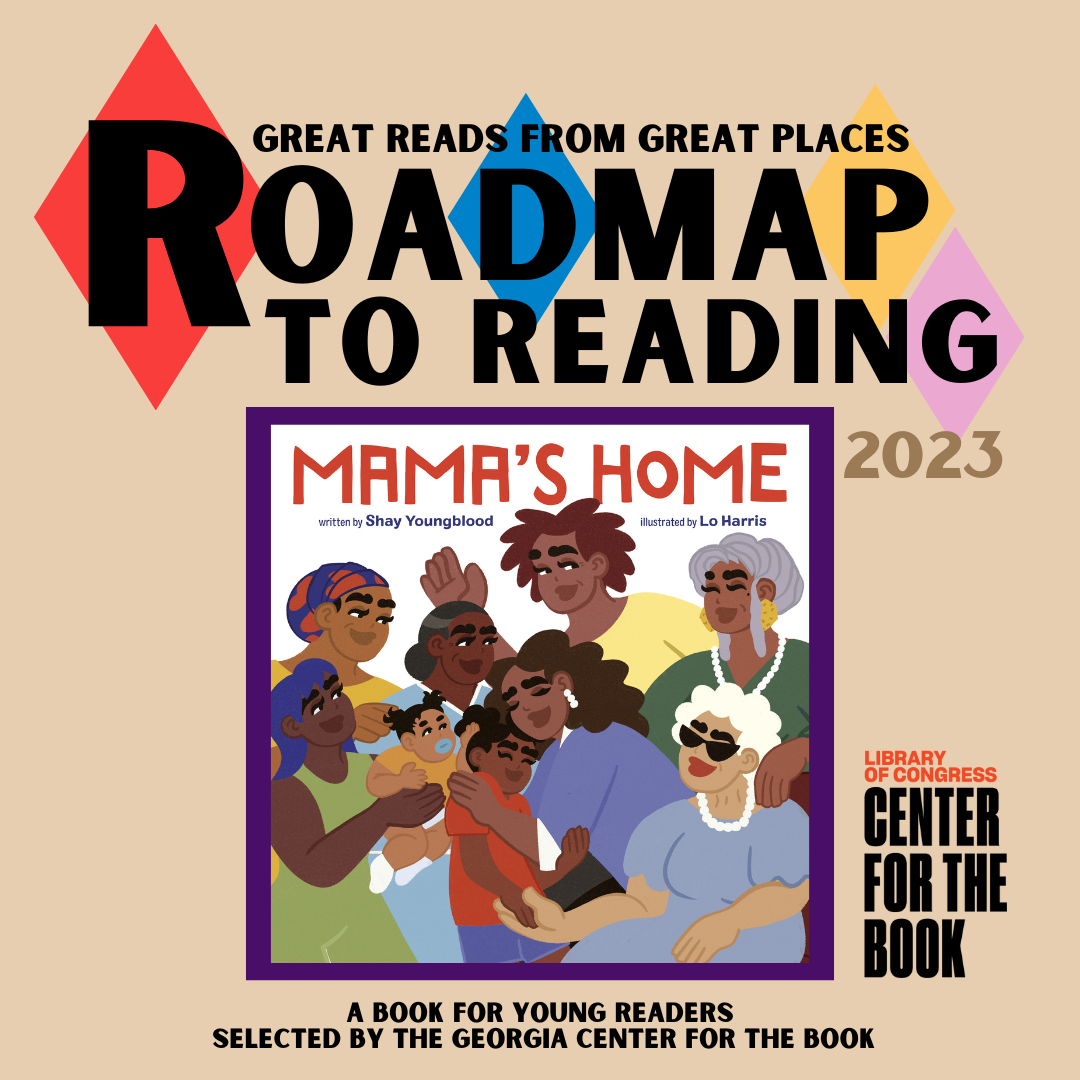
Mama’s Home by Shay Youngblood, Illustrations by Lo Harris
Young Readers’ Selection 2023
Mama’s Home is a gorgeously illustrated picture book about a young girl who basks in the love of her community – which includes not only her mother but the many different women who make up her world. Home can be a blue house with white trim you share with your mama. But it can be bigger than that, with lots of Big Mamas to take care of you when your mom works — different houses for every day of the week. Mondays mean Nurse Louella and bike riding. Tuesdays mean eating fufu with your fingers with Miss Zikora. And Wednesdays … well, no matter where you are, as long as you are with your Big Mamas, you are home. This book is a powerful love letter to chosen families and the villages that raise us, from Pushcart Prize-winning author Shay Youngblood and popular illustrator Lo Harris.
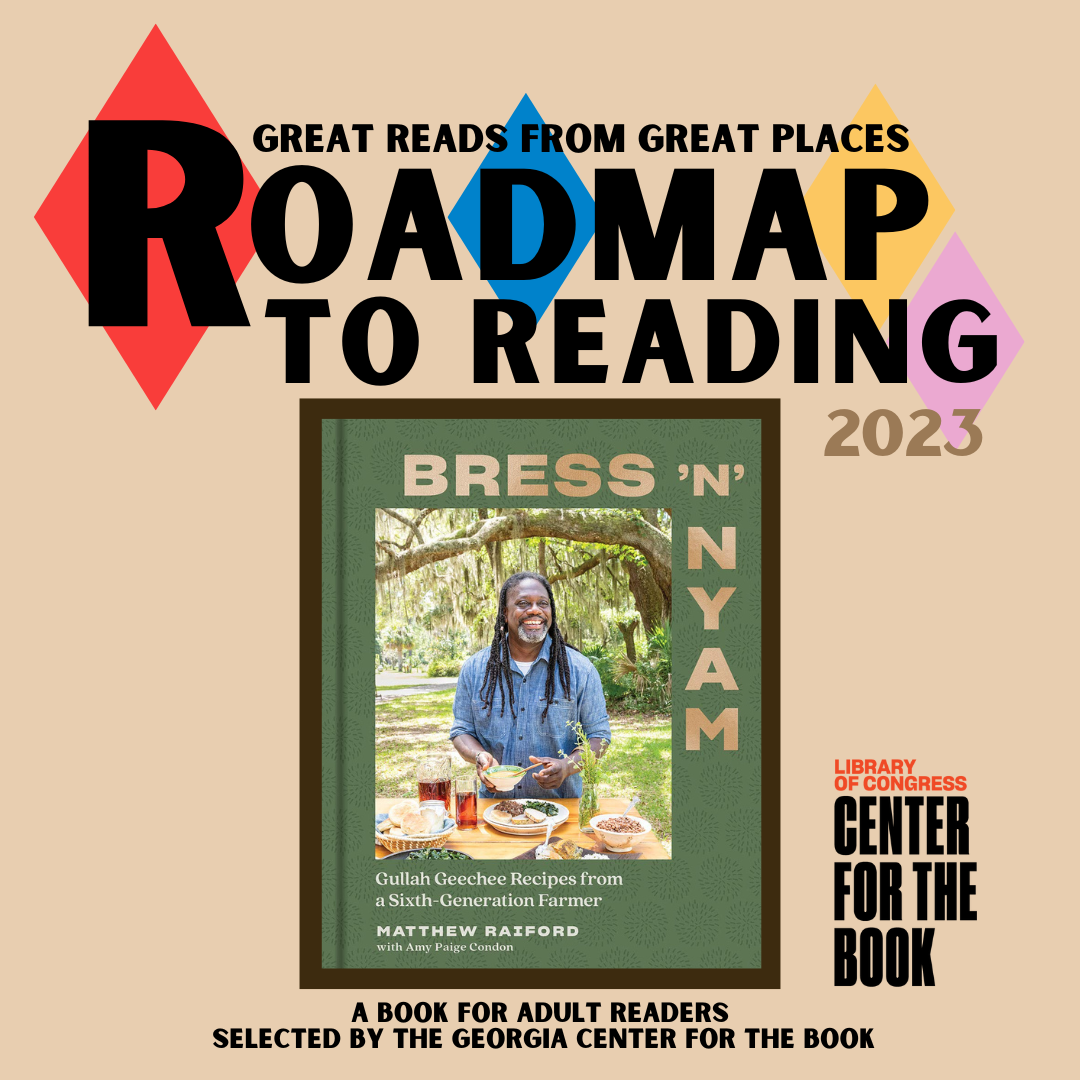
Bress ‘n’ Nyam: Gullah Geechee Recipes from a Sixth-Generation Farmer by Matthew Raiford (with Amy Paige Condon)
Adult Readers’ Selection 2023
Bress ‘n’ Nyam includes more than 100 heirloom recipes from a dynamic chef and farmer working the lands of his great-great-great grandfather. From Hot Buttermilk Biscuits and Sweet Potato Pie to Salmon Cakes on Pepper Rice and Gullah Fish Stew, Gullah Geechee food is an essential cuisine of American history. It is the culinary representation of the ocean, rivers, and rich fertile loam in and around the coastal South. From the Carolinas to Georgia and Florida, this is where descendants of enslaved Africans came together to make extraordinary food, speaking the African Creole language called Gullah Geechee. In this groundbreaking and beautiful cookbook, Matthew Raiford pays homage to this cuisine that nurtured his family for seven generations. In 2010, Raiford’s Nana handed over the deed to the family farm to him and his sister, and Raiford rose to the occasion, nurturing the farm that his great-great-great grandfather, a freed slave, purchased in 1874. In this collection of heritage and updated recipes, he traces a history of community and family brought together by food.
2022
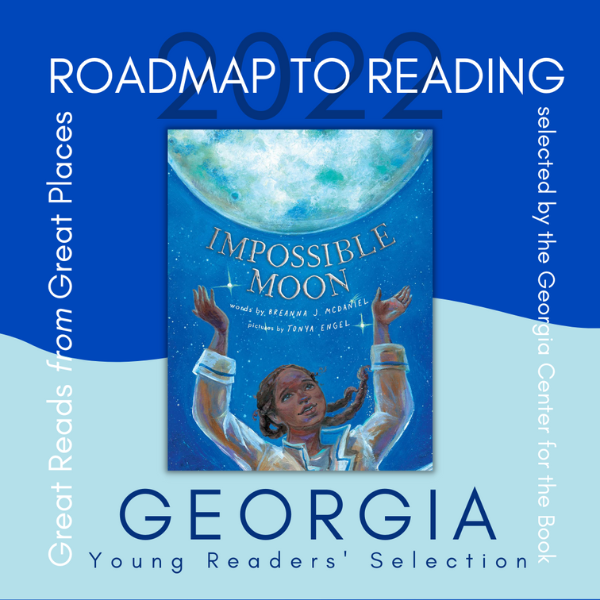
Impossible Moon by Breanna J. McDaniel, Illustrations by Tonya Engel
Young Readers’ Selection 2022
In Impossible Moon, a young girl undertakes an impossible trip to the moon, makes friends with the stars, and brings back something priceless in this gentle and lyrically told picture book about family, history, and memory. Grana used to tell the best stories, and Mabel used to long to soar through the heavens. Nowadays, Grana mostly lies in bed and Mabel stays close to home. But one day, Grana asks, “If we can touch the moon, then what is impossible?” So Mabel decides to do just that, embarking on a journey through the stars where The Seven Sistahs, The Big Dipper, and other constellations help her on her quest and teach her about African mythology and African American history. With the support of her new companions, Mabel reaches for her biggest dream yet: to make her sick grandma well again.

Gathering Blossoms Under Fire: The Journals of Alice Walker Edited by Valerie Boyd
Adult Readers’ Selection 2022
From National Book Award and Pulitzer Prize – winning author Alice Walker and edited by critic and writer Valerie Boyd, comes an unprecedented compilation of Walker’s fifty years of journals drawing an intimate portrait of her development over five decades as an artist, human rights and women’s activist, and intellectual. For the first time, the edited journals of Alice Walker are gathered together to reflect the complex, passionate, talented, and acclaimed Pulitzer Prize winner of The Color Purple. She intimately explores her thoughts and feelings as a woman, a writer, an African-American, a wife, a daughter, a mother, a lover, a sister, a friend, a citizen of the world. In an unvarnished and singular voice, she explores an astonishing array of events: marching in Mississippi with other foot soldiers of the Civil Rights Movement, led by Martin Luther King, Jr.; her marriage to a Jewish lawyer, defying laws that barred interracial marriage in the 1960s South; an early miscarriage; writing her first novel; the trials and triumphs of the Women’s Movement; erotic encounters and enduring relationships; the ancestral visits that led her to write The Color Purple; winning the Pulitzer Prize; being admired and maligned, sometimes in equal measure, for her work and her activism; and burying her mother. A powerful blend of Walker’s personal life with political events, this revealing collection offers rare insight into a literary legend.
